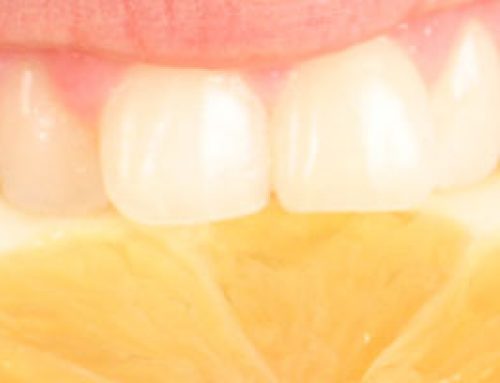The same bacteria that cause cavities can collect beneath your gum tissue, causing infection. If left untreated, gum disease can spread throughout your mouth and even cause systemic illness, so it is important to treat this condition promptly and effectively. Improved oral hygiene can usually remedy milder cases of gingivitis, but more advanced infection may require restorative dentistry procedures. Dr. Sutherland, Dr. Lyons, and Dr. Albers can diagnose and recommend procedures to treat gum disease. One of the most common periodontal procedures at our Downtown Houston practice is root planing and scaling, which involves a deep cleaning of your teeth and gums to remove bacteria, plaque, and tartar. Read on to learn more about when this treatment is appropriate and how it can restore your gum health.
The Basics of Gum Disease
Without proper oral hygiene, plaque, a sticky layer of bacteria, debris, mucus, and tartar, which is hardened plaque, can develop on your teeth. Plaque and tartar that grow beneath your gums can infect your tissue, creating periodontal disease. There are two basic stages of this infection:
- Gingivitis is a milder form of gum disease, which primarily causes inflammation, bleeding, redness, and aching. It can typically be treated with an improved oral hygiene regimen, including daily brushing and flossing.
- If you do not treat gingivitis, the infection can worsen and become periodontitis, a condition in which the gums become so inflamed that they begin to separate from the teeth, creating pockets where more bacteria can collect. At this stage, toxins begin to damage your bone and connective tissue, potentially causing structural damage and tooth loss.
Periodontal disease may not present obvious symptoms until it advances to periodontitis, so it is important to come in to our office for routine exams and cleanings at least twice per year. Contact us if your gums bleed, swell, turn red, have a foul taste, begin to recede from your teeth, develop sores, ooze pus, or develop any other troubling symptoms. The sooner we can treat gum disease, the less damage it can do to your mouth.
Root Planing and Scaling Candidates
This procedure is an intermediate level treatment for moderate gum disease, used for patients who have developed plaque and tartar around and under their gums. Dr. Sutherland, Dr. Lyons, or Dr. Albers may recommend it if a stricter oral hygiene regimen has not resolved your infection but you do not wish to undergo more intensive periodontal surgery. You may also opt for root planing and scaling if you have only mild gum disease but wish to reverse it quickly and successfully. You may be ineligible for root planing and scaling if you suffer from heart disease or a weakened immune system.
The Deep Cleaning Procedure
As its name suggests, there are two components to this treatment:
- Root planing involves smoothing the surface of your tooth under your gums so that bacteria cannot collect there as easily.
- Scaling is a procedure to remove plaque, tartar, and particulate matter from beneath your gums, removing the bacteria causing the infection.
We can perform root planing and scaling with manual instruments or using advanced laser technology. Since it is a deep cleaning and can last for up to three hours, we typically perform this procedure under local anesthesia to keep you comfortable. Our dentists usually recommend breaking up treatment into four appointments (one per quadrant of your mouth) to make it as manageable as possible. Your tissue may ache or feel tender for a few days after root planing and scaling. With good dental hygiene, you should be able to keep your teeth and gums clean, healthy, and free from infection.
Learn More about Periodontal Care
Our dentists can help you prevent gum disease with proper hygiene, diagnose your condition if you suffer from symptoms of an infection, and treat your condition with procedures like root planing and scaling. Please contact our office today to learn more about our periodontal care services.






